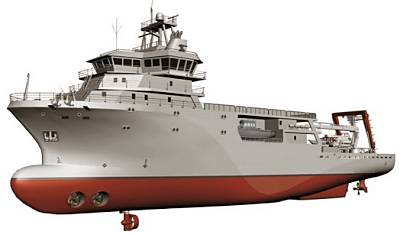WASHINGTON, Jan. 31, 2012 — America and the world are facing the most complex set of challenges in at least 50 years, the director of national intelligence told the Senate Select Committee on Intelligence here today.
James R. Clapper Jr., a retired Air Force lieutenant general, said capabilities, technologies, know-how, communications and environmental forces “aren’t confined by borders and can trigger transnational disruptions with astonishing speed.”
“Never before has the intelligence community been called upon to master such complexity on so many issues in such a resource- constrained environment,” he added.
CIA Director David H. Petraeus, FBI Director Robert S. Mueller III, Defense Intelligence Agency Director Army Lt. Gen. Ronald L. Burgess Jr. and others accompanied Clapper during his testimony on Capitol Hill. Clapper spoke for all agencies in his opening statement.
All U.S. agencies are combating the complex environment and making sense of the threats by continuing to integrate the community and “by taking advantage of new technologies, implementing new efficiencies and, as always, simply working hard,” Clapper said.
Still, he said, all agencies are confronting the difficult fiscal environment.
“Maintaining the world’s premier intelligence enterprise in the face of shrinking budgets will be difficult,” the director said. “We’ll be accepting and managing risk more so than we’ve had to do in the last decade.”
Terrorism and proliferation remain the first threats the intelligence agencies must face, he said, and the next three years will be crucial. “With Osama bin Laden’s death, the global jihadist movement lost its most iconic and inspirational leader,” Clapper said. “The new al-Qaida commander is less charismatic, and the death or capture of prominent al-Qaida figures has shrunk the group’s top leadership layer.”
But while degraded, the organization remains a threat, Clapper warned. “As long as we sustain the pressure on it, we judge that core al-Qaida will be of largely symbolic importance to the global jihadist movement,” he said. “But regional affiliates … and, to a lesser extent, small cells and individuals will drive the global jihad agenda.”
Efforts to develop, acquire or spread weapons of mass destruction, also pose a major global strategic threat, Clapper told the senators. “Among nation-states, Iran’s technical advances, particularly in uranium enrichment, strengthen our assessment that Iran is well-capable of producing enough highly-enriched uranium for a weapon if its political leaders, specifically the supreme leader himself, choose to do so,” the director said.
North Korea continues to export ballistic missiles and associated materials to several countries, including Iran and Syria, Clapper said, and intelligence leaders do not see a change under Kim Jong Un, the North’s new leader.
Cyber threats have risen in danger, Clapper said. “We foresee a cyber environment in which emerging technologies are developed and implemented before security responses can be put in place,” he said. “Among state actors, we’re particularly concerned about entities within China and Russia conducting intrusions into U.S. computer networks and stealing U.S. data.”
Nonstate actors also are cyber threats capable of employing disruptive, and even lethal, technology, Clapper told the panel. The two biggest challenges in the cyber world, he said, are centered on knowing who launched an attack and how to manage the enormous vulnerabilities within U.S. networks.
While some troops are coming home, Afghanistan remains a hot spot, Clapper said.
“During the past year, the Taliban lost some ground, but that was mainly in places where the International Security Assistance Forces … were concentrated,” the director said. “And the Taliban’s senior leaders continued to enjoy safe haven in Pakistan.”
ISAF’s efforts to partner with Afghan national security forces are encouraging, he said, “but corruption and governance challenges continue to threaten the Afghan forces’ operational effectiveness.”
To be successful, Afghanistan must have support from ISAF and its neighbors — particularly Pakistan, Clapper said. “And although there’s broad international political support for the Afghan government,” he added, “there are doubts in many capitals, particularly in Europe, about how to fund Afghanistan initiatives after 2014.”
U.S. troops are out of Iraq, but U.S. interests in the country remain, the director said. Since the pull-out, violence and sporadic high-profile attacks continue. Iraqi government actions have heightened political tensions with Sunni leaders, “but for now, the Sunnis continue to view the political proves as the best venue to pursue change,” Clapper said.
Revolts and unrest have spread across the Middle East and North Africa, Clapper noted. People confronting ruling elites; sectarian, ethnic and tribal divisions; lack of experience with democracy; stalled economic development; military and security force resistance; and regional power initiatives all have potential for exploitation by extremists.
“These are fluid political environments that offer openings for extremists to participate much more assertively in political life,” Clapper said. “States where authoritarian leaders have been toppled — like Tunisia, Egypt and Libya — have to reconstruct their political systems through complex negotiations among competing factions.”
In Syria, the Assad regime continues to dig in and has ordered security forces to fire on their own people. Continued violence “could potentially turn domestic upheavals into regional crises,” the director said.
In Yemen, although a political transition is under way, the security situation continues to be marred by violence, and fragmentation of the country is a real possibility, he said.
“The intelligence community is also paying close attention to the developments across the African continent, throughout the Western Hemisphere, Europe and across Asia,” Clapper said. “Here, too few issues are self-contained. Virtually every region has a bearing on our key concerns of terrorism, proliferation, cybersecurity and instability.
“And throughout the globe,” he added, “wherever there are environmental stresses on water, food and natural resources, as well as health threats, economic crises and organized crime, we see ripple effects around the world and impacts on U.S. interests.”
Source:
U.S. Department of Defense
Office of the Assistant Secretary of Defense (Public Affairs)

 von
von 
